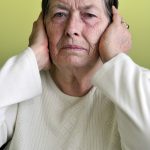 More than 45 million Americans suffer from severe or chronic headaches. If you suffer from headaches, you know that the pain your headaches cause can be absolutely debilitating. While there are many causes of headaches including stress, hormonal changes, muscle tension, lack of sleep, sinus infections, and weather changes, many headache sufferers (including those that suffer from migraines) can pin point certain foods that trigger their headaches. If you’re looking for pain relief from your headaches, eliminating certain foods from your diet may be a simple step that you can take.
More than 45 million Americans suffer from severe or chronic headaches. If you suffer from headaches, you know that the pain your headaches cause can be absolutely debilitating. While there are many causes of headaches including stress, hormonal changes, muscle tension, lack of sleep, sinus infections, and weather changes, many headache sufferers (including those that suffer from migraines) can pin point certain foods that trigger their headaches. If you’re looking for pain relief from your headaches, eliminating certain foods from your diet may be a simple step that you can take.
What are Headaches?
Headaches are defined as pain in the head or upper neck area. Tension headaches and migraine headaches are two common types of headaches that millions of Americans suffer from. Tension headaches are often referred to as “stress” headaches and are the most common type of headache. People who suffer from tension headaches commonly describe their pain as “vice-like” pain, tightness and/or pressure around the head or neck. Migraine headaches are the second most common type of headache and are vascular in nature. People that suffer from migraine headaches not only have pain; they also often have sensitivity to light and sound, experience vision changes and may have nausea/vomiting.
Relationship between Diet and Headaches
Advertisement
Diet and headaches are connected in two ways:
1. Some foods are believed to trigger headaches
2. Diet habits can trigger headaches – dehydration, fasting, skipping meals, etc.
Keeping a headache diary will help to determine the cause of your headaches and help to identify any foods that may be triggering them. Once a food trigger has been identified, you should eliminate it from your diet for pain relief.
Common Foods That Trigger Headaches
According to WebMD, there are a number of foods that have been found to trigger headaches, including:
Aged Cheese – the substance thought to be responsible for trigging headaches is tyramine. This is produced as the protein breaks down. Older cheese contains more tyramine. Cheeses that contain high levels of tyramine include: blue cheese, brie, cheddar, feta, gorgonzola, mozzarella, Swiss, and processed varieties.
Alcohol – blood flow to your brain is increased when you consume alcohol. Red wine, beer, champagne and whiskey are commonly identified as types of alcohol that trigger headaches. Drinking alcohol can also cause dehydration which can also trigger headaches.
Food Preservatives – certain food preservatives (often found in processed and canned foods) can cause dilation of blood vessels in some individuals which can trigger headaches.
Cold foods – sensitivity to cold foods is more likely to occur if you’re over-heated according to WebMD. Up to 90% of migraine sufferers report sensitivity to cold foods according to WebMD.
Relationship between Caffeine and Headaches
Advertisement
Caffeine found in coffee, tea and other beverages can be good and bad for your head pain. Caffeine, in small amounts, can actually help with pain relief. Caffeine is actually added to many pain relief medications because it helps the body to absorb the medication faster. However, if you are constantly sipping a cup of coffee, you may be setting yourself up for a rebound or withdrawal headache when you stop drinking it. Limit your caffeine consumption to 300mg per day to decrease your risk of suffering headaches associated with caffeine.
RELATED READING: 332% More Powerful Than Glucosamine?
Limiting foods and beverages from your diet for pain relief is a simple step that you can take to help deal with the pain associated with your headaches. Consulting with a nutritionist or dietician may also be a good idea to get you on the right track.
